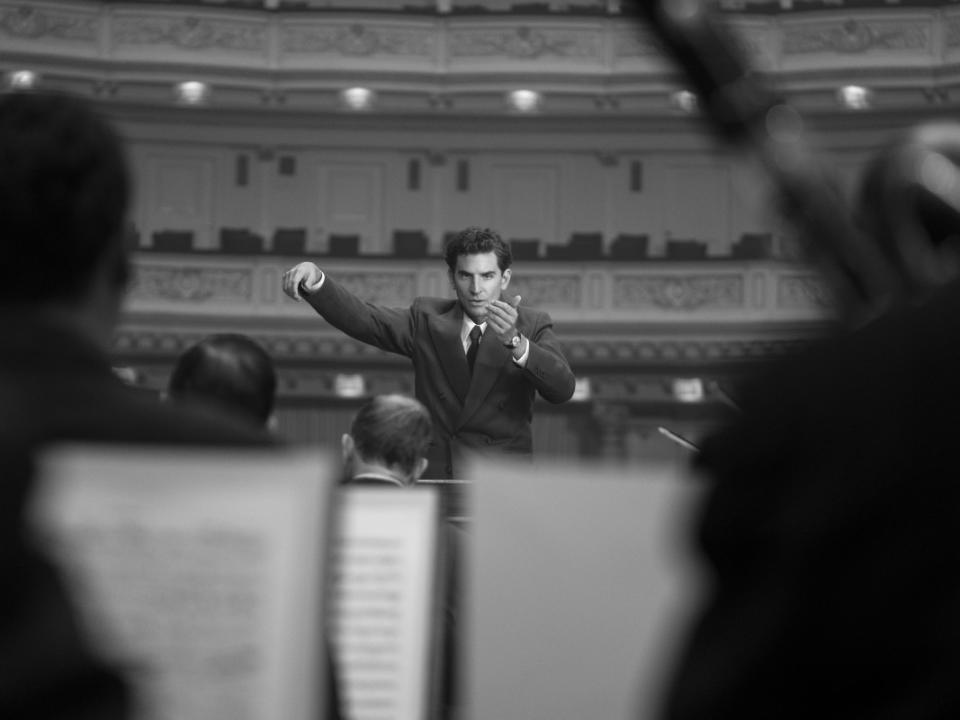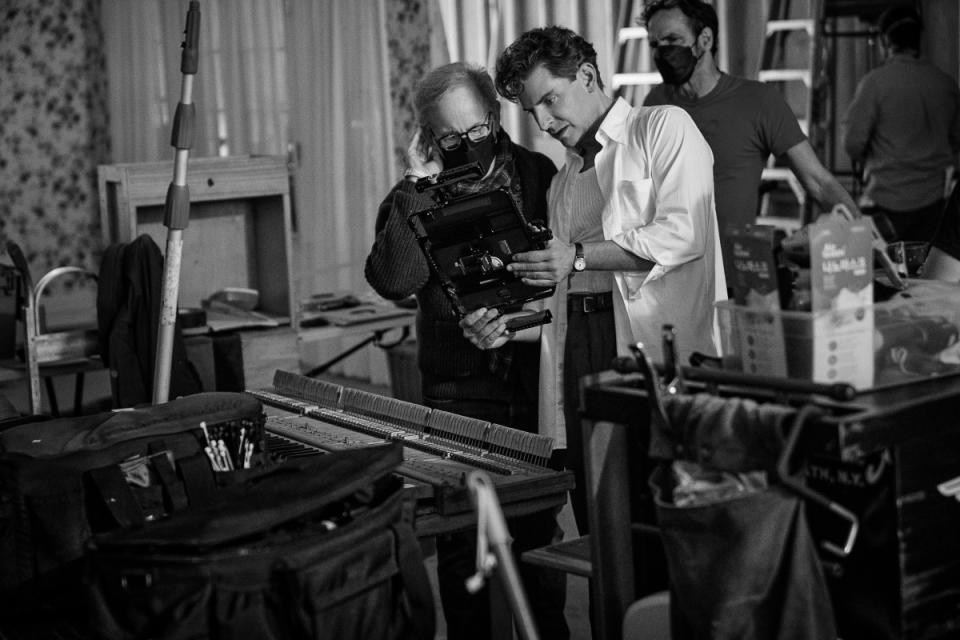Maestro Review: A Masterful Symphony From Bradley Cooper
Tales of the tormented male artist are as old as time. They cannot decipher what it means to be both human and genius, and so the line between the two blurs until what is left is a complex mess of fragility and self-inflicted unfulfilled expectation.
Bradley Cooper's second directorial effort, Maestro, examines the consequence of this.
Cooper leads as conductor and composer Leonard Bernstein opposite Carey Mulligan, who plays his wife and artist in her own right, Felicia Montealegre. Maestro spans decades, and we are transported through time by two-time Oscar winner Kazu Hiro, the prosthetic makeup designer for Cooper's Bernstein.
A cyclical affair, we start at the end, revealing where Cooper is heading, and immediately find ourselves enamoured by the artistry on display. Prosthetics are passed off as "Oscar bait" and undermined for the same reason, but you cannot deny the craftsmanship of Hiro, who carved a lifetime on Cooper's face. Here, Bernstein is older, worn down, more subdued, reflective; he knows well what we are yet to watch unfold.

Jason McDonald/Netflix
Biopics, particularly musical ones, often fall into the trap of infatuation with every facet of its subject's life. They're made enthusiastically, jumping precariously around in time, expecting the audience to keep up and often forgetting to invite us to fall in love with the storyteller's impetus. In other words, they dazzle without substance.
Cooper's approach is already unique in that Bernstein isn't hugely likeable. He is aware of his mastery and takes advantage of it. He carries arrogance. He cheats on his wife. He shouts. He loses his temper. But he is also relatable. The untouchable giant of American music reflects every part of ourselves we dislike. He is a lone warrior despite the multitude of love that surrounds him - seeking identity beneath the sorrow that clouds him.
Maestro also indulges in the fanciful. Bernstein saw eight decades, and the film does, too. It is creative with colour, design and aspect ratio, not restricting itself to one specific look. The film's aesthetic develops and changes with the world around it, admiring what ever-changing culture did for art and music throughout time. Bernstein soaks himself in what these changes can do for him as an artist, and Cooper wants us to love it just as much through the lens of his magnificent Director of Photography, Matthew Libatique. Libatique has had two Oscar nominations and, in a just world, will receive a third this year.

Jason McDonald/Netflix
It cannot be understated just how proficient a director must be to communicate their vision to pull off a film as exuberant as Maestro. It is so elegantly composed that Cooper deserves the ample praise he is receiving for being able to write, star in and direct a film as seamlessly delivered as this one. With producers like Steven Spielberg and Martin Scorsese on board, it is hard to see how this film could be anything but masterful.
Carey Mulligan also deserves her flowers for delivering an expectedly divine performance as the spirited Felicia Montealegre, who clings to a love that is both innocent and tainted. Her transformation is subtle, delivered through how she chooses to guard herself against the repeated hurt her husband inflicts on the family. In a standout scene in The Dakota, Mulligan receives the perfect opportunity to showcase her skill. She had her own desires and took her art as seriously as Bernstein did, yet she did not give in to the same vices.
When we meet Bernstein from the beginning of Maestro again, we understand the life that led him to the present. After a symphony of beautiful vignettes, we are left reflecting on what love can do to us, whether that be the love of a person, of desire, of our own sadness or talent. Hindsight is everything, and perhaps all we can do is share our lessons learned with a new generation who will inevitably stumble in the same way that we did.
